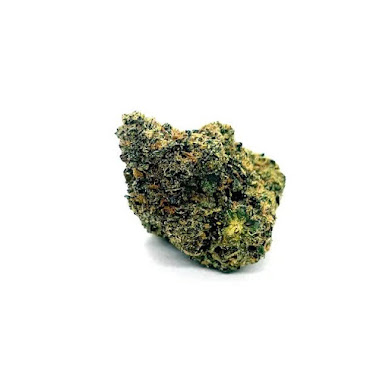Cannabis: A Natural Medicine for the Modern World
In recent years, there has been a growing shift in the way society views cannabis. Once stigmatized and vilified, cannabis is now being recognized for its potential as a natural medicine for the modern world. With a rich history of medicinal use dating back thousands of years, cannabis is making a comeback as a versatile and effective treatment for a wide range of health conditions. In this article, we will explore the therapeutic properties of cannabis, its historical context, and its evolving role in modern medicine.
A Historical Perspective
Cannabis, also known as marijuana, has a long and storied history of medicinal use. Ancient civilizations, from China to Egypt, utilized this plant for its healing properties. The first recorded use of cannabis as medicine dates back to 2737 BCE when the Chinese Emperor Shen Neng prescribed it for various ailments, including gout and rheumatism.
In India, cannabis was mentioned in the ancient Ayurvedic texts as a remedy for a variety of health issues, and it was believed to bring balance to the body and mind. Even in the Western world, cannabis was used in medical preparations throughout the 19th and early 20th centuries.
However, the demonization of cannabis began in the early 20th century, culminating in its prohibition in many parts of the world. This prohibition lasted for decades, hindering scientific research into its medicinal potential. Fortunately, times are changing, and cannabis is being reevaluated for its therapeutic benefits.
The Components of Cannabis
Cannabis contains over 100 different compounds known as cannabinoids, with two primary players: tetrahydrocannabinol (THC) and cannabidiol (CBD). THC is responsible for the psychoactive effects of cannabis, while CBD is non-psychoactive and has gained recognition for its potential medical applications.
THC binds to cannabinoid receptors in the brain and nervous system, producing the "high" commonly associated with cannabis. This psychoactive property has limited its acceptance as a medicine in the past. However, recent research has shown that THC also has therapeutic properties, including pain relief, muscle relaxation, and appetite stimulation.
CBD, on the other hand, does not produce a high and has been the focus of extensive research for its potential medical benefits. CBD interacts with the body's endocannabinoid system, which plays a crucial role in regulating various physiological processes, such as pain perception, mood, and immune response. As a result, CBD has shown promise in treating a wide range of conditions, including chronic pain, anxiety, epilepsy, and inflammation.
Medical Applications of Cannabis
Cannabis has demonstrated its efficacy in managing various health conditions, making it a natural medicine for the modern world. Here are some of the key medical applications:
Chronic Pain: Chronic pain affects millions of people worldwide, and conventional pain medications can have undesirable side effects and risks of addiction. Cannabis, particularly CBD-rich strains, has shown promise in alleviating chronic pain by modulating the endocannabinoid system.
Anxiety and Depression: Mental health disorders like anxiety and depression are pervasive in our modern society. CBD has been found to have anxiolytic and antidepressant properties, offering a potential natural alternative to traditional pharmaceuticals.
Epilepsy: CBD has gained recognition for its ability to reduce the frequency and severity of seizures in some forms of epilepsy, such as Dravet syndrome and Lennox-Gastaut syndrome. Epidiolex, a CBD-based medication, has been approved by the FDA for the treatment of these conditions.
Cancer-related Symptoms: Cancer patients often experience debilitating symptoms such as nausea, vomiting, and loss of appetite due to chemotherapy. Cannabis, particularly strains high in THC, can help alleviate these side effects and improve the quality of life for cancer patients.
Inflammation and Autoimmune Diseases: CBD has anti-inflammatory properties, making it a potential treatment for autoimmune diseases like rheumatoid arthritis and Crohn's disease. It may help reduce inflammation and manage symptoms.
Neurological Disorders: Research suggests that cannabis may hold promise in the treatment of neurodegenerative diseases like Alzheimer's and Parkinson's, although more studies are needed to fully understand its potential.
Challenges and Future Prospects
While cannabis shows tremendous promise as a natural medicine, there are still challenges to overcome. Regulatory barriers, stigma, and a lack of comprehensive scientific research have hindered its integration into mainstream medicine. However, the tide is turning, with an increasing number of countries legalizing cannabis for medical use and research.
As we move forward, it is essential to conduct rigorous scientific studies to determine the safety and efficacy of various cannabis strains and products. Standardization of dosing and quality control will be critical to ensure consistent outcomes for patients. Additionally, healthcare providers must receive education and training to better understand how to integrate cannabis into treatment plans and monitor patients effectively.
In conclusion, cannabis is emerging as a natural medicine for the modern world, offering hope to individuals suffering from a wide range of health conditions. Its historical use and recent scientific discoveries highlight its potential as a versatile and effective therapeutic tool. As we continue to unravel the mysteries of this ancient plant, it is crucial to approach its medical use with diligence, research, and an open mind, recognizing its potential to improve the lives of countless individuals in the years to come.



Comments
Post a Comment